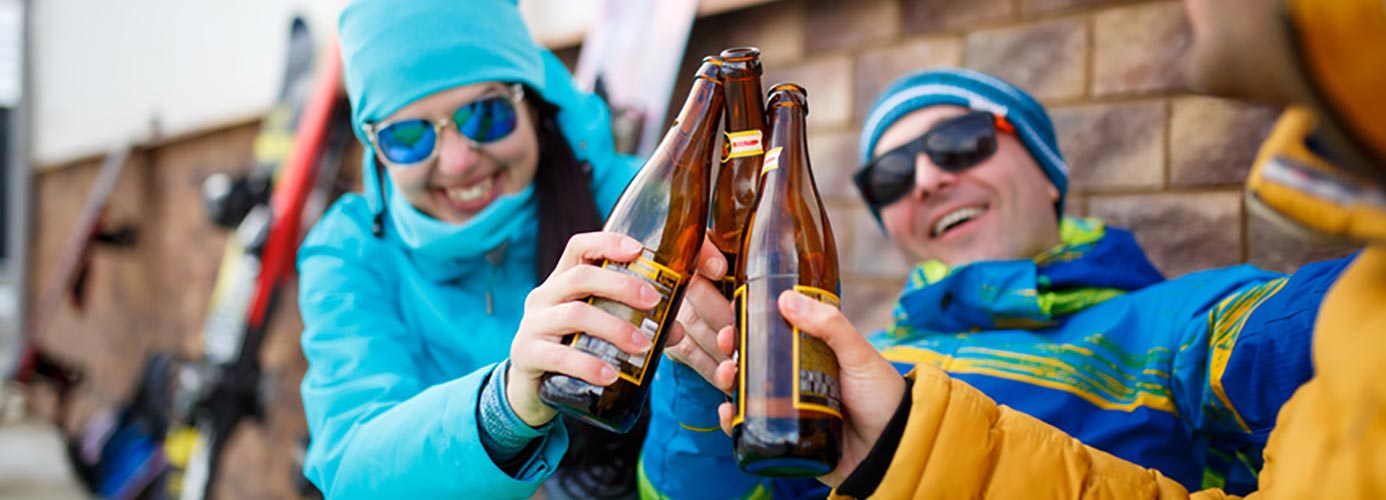Have you ever wondered about the role alcohol plays in our community? Have you noticed the presence of alcohol at our community fundraisers, local outdoor activities, celebrations, holiday festivities and as the go to for relaxation? Is the alcohol culture here similar to the rest of the country or the state? Or does our community have a drinking problem?
According to the 2017 Community Health Needs Assessment conducted by Tahoe Forest Health System, 28.3% of residents self-reported at least one binge drinking episode within the past 30 days. This is 42% higher than the binge drinking rate for the state of California (16.3%).
The fact that we live in resort community is often used to explain our high drinking rates. People come to the Tahoe area to vacation, blow off some steam and challenge themselves in the great outdoors. While many can rationalize some extra celebratory alcohol during their vacation, the numbers reported above represent people who call Tahoe Truckee their full time home.
There also appears to be strong association with drinking and outdoor sports. The beers consumed after the mountain bike ride, the cooler full of alcoholic beverages for the rafting trip, the après ski stop at the Chamois for a pitcher or celebrating you kid’s baseball game. If nature is great and cold beer is great, then the two must be exponentially greater together. The December 2018 edition of 5280- Denver’s Mile High Magazine, has an extensive article on this very topic.
According to Dr. Brett Kennedy, a Boulder-based clinical psychologist who specializes in addiction, people who participate in adventure sports like skiing are inclined to search for dopamine blasts beyond what they get from risk-taking. “Culturally, we associate alcohol and drugs with celebration,” Kennedy says. “You do something really intense, and then you reward yourself with a dose of alcohol. I [also] think where you’re getting an absolute surge of dopamine and adrenaline with skiing a steep line, there might be a natural desire to recover from that through the depressant qualities of alcohol. That’s the paradoxical effect of drinking.”
Ultimately, the impact of these habits and associations extends beyond us, and to the behaviors we are modeling for our children. Do we need to drink beer after each ski team event, or can we adapt our culture around alcohol use to create a healthier environment for the next generation of risk takers and adventure seekers?
It is interesting to examine the benefits experienced from decreasing the amount of alcohol consumed. People who decrease their alcohol intake report increased clarity, productivity, motivation, and energy as well as improved sleep, weight loss, and extra money in the bank.
Taking a closer look at one’s alcohol consumption is a good thing, if just to increase personal awareness around habits. If you are ready to take a second look at your alcohol use, here is a good place to start:
- Track your current drinking habits (daily, weekly, and situational) and the number of drinks you consume. If you find that you drink an alcoholic beverage on most days of the week, consider increasing the number of days a week you do not drink. Try setting a goal for the maximum number of drinks per week and drinks per occasion, and see if you can stick with that goal. Another option is to consider eliminating alcohol for a period of time.
- Seek to understand the motivators behind your drinking habits and pay attention to your relationships with alcohol.
- Experiment with new strategies for reducing stress and celebrating your awesome day in the outdoors.
For additional tools and resources to assist you in assessing you habits, including identifying your drinking patterns, or if you think you need professional help in reducing your alcohol intake, search “Rethinking Drinking” for more information.
Article provided by the Wellness Neighborhood, helping you Rethink Healthy.





 Appointment Scheduling:
Appointment Scheduling: